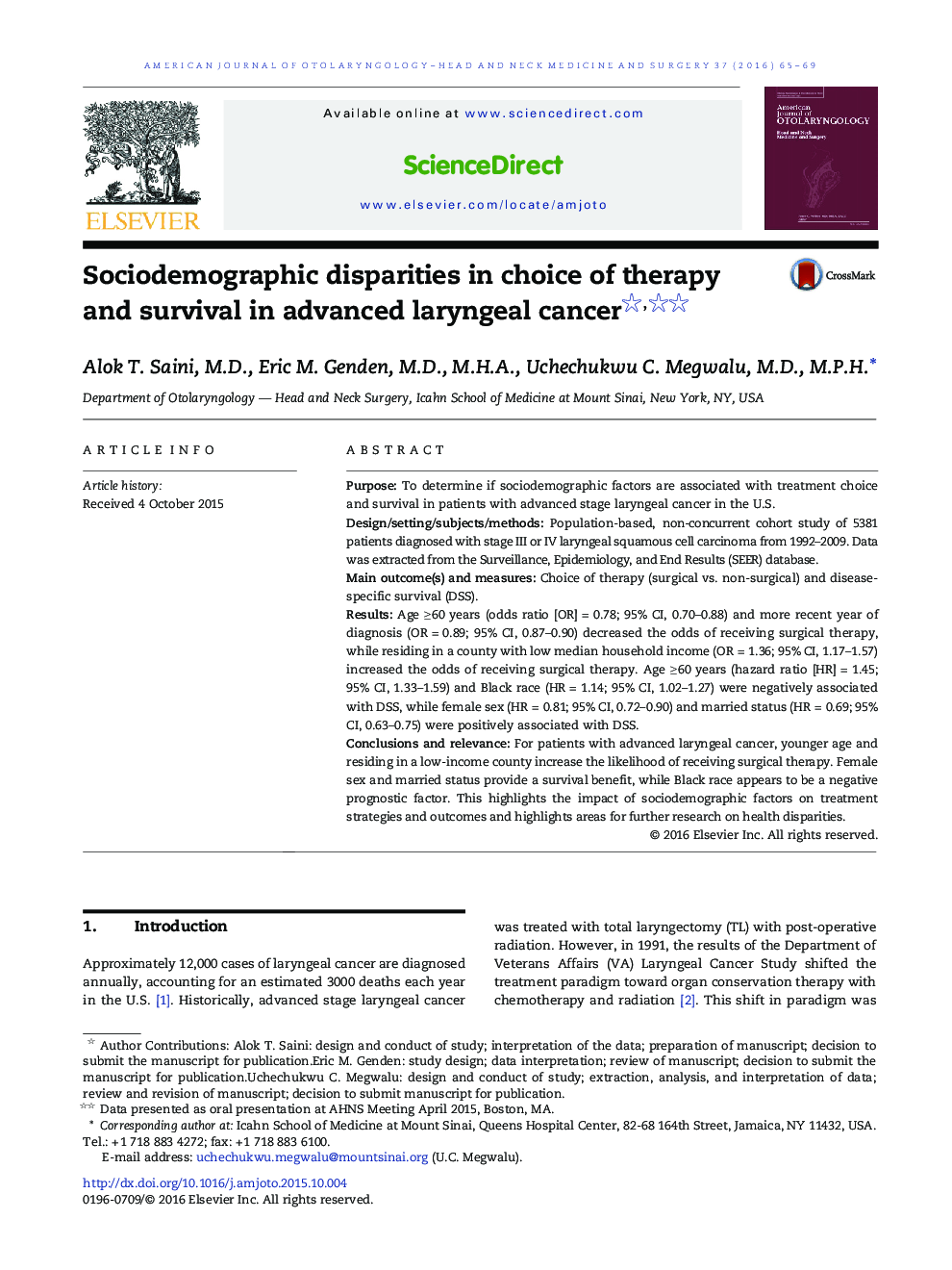| Article ID | Journal | Published Year | Pages | File Type |
|---|---|---|---|---|
| 4102966 | American Journal of Otolaryngology | 2016 | 5 Pages |
PurposeTo determine if sociodemographic factors are associated with treatment choice and survival in patients with advanced stage laryngeal cancer in the U.S.Design/setting/subjects/methodsPopulation-based, non-concurrent cohort study of 5381 patients diagnosed with stage III or IV laryngeal squamous cell carcinoma from 1992–2009. Data was extracted from the Surveillance, Epidemiology, and End Results (SEER) database.Main outcome(s) and measuresChoice of therapy (surgical vs. non-surgical) and disease-specific survival (DSS).ResultsAge ≥ 60 years (odds ratio [OR] = 0.78; 95% CI, 0.70–0.88) and more recent year of diagnosis (OR = 0.89; 95% CI, 0.87–0.90) decreased the odds of receiving surgical therapy, while residing in a county with low median household income (OR = 1.36; 95% CI, 1.17–1.57) increased the odds of receiving surgical therapy. Age ≥ 60 years (hazard ratio [HR] = 1.45; 95% CI, 1.33–1.59) and Black race (HR = 1.14; 95% CI, 1.02–1.27) were negatively associated with DSS, while female sex (HR = 0.81; 95% CI, 0.72–0.90) and married status (HR = 0.69; 95% CI, 0.63–0.75) were positively associated with DSS.Conclusions and relevanceFor patients with advanced laryngeal cancer, younger age and residing in a low-income county increase the likelihood of receiving surgical therapy. Female sex and married status provide a survival benefit, while Black race appears to be a negative prognostic factor. This highlights the impact of sociodemographic factors on treatment strategies and outcomes and highlights areas for further research on health disparities.
